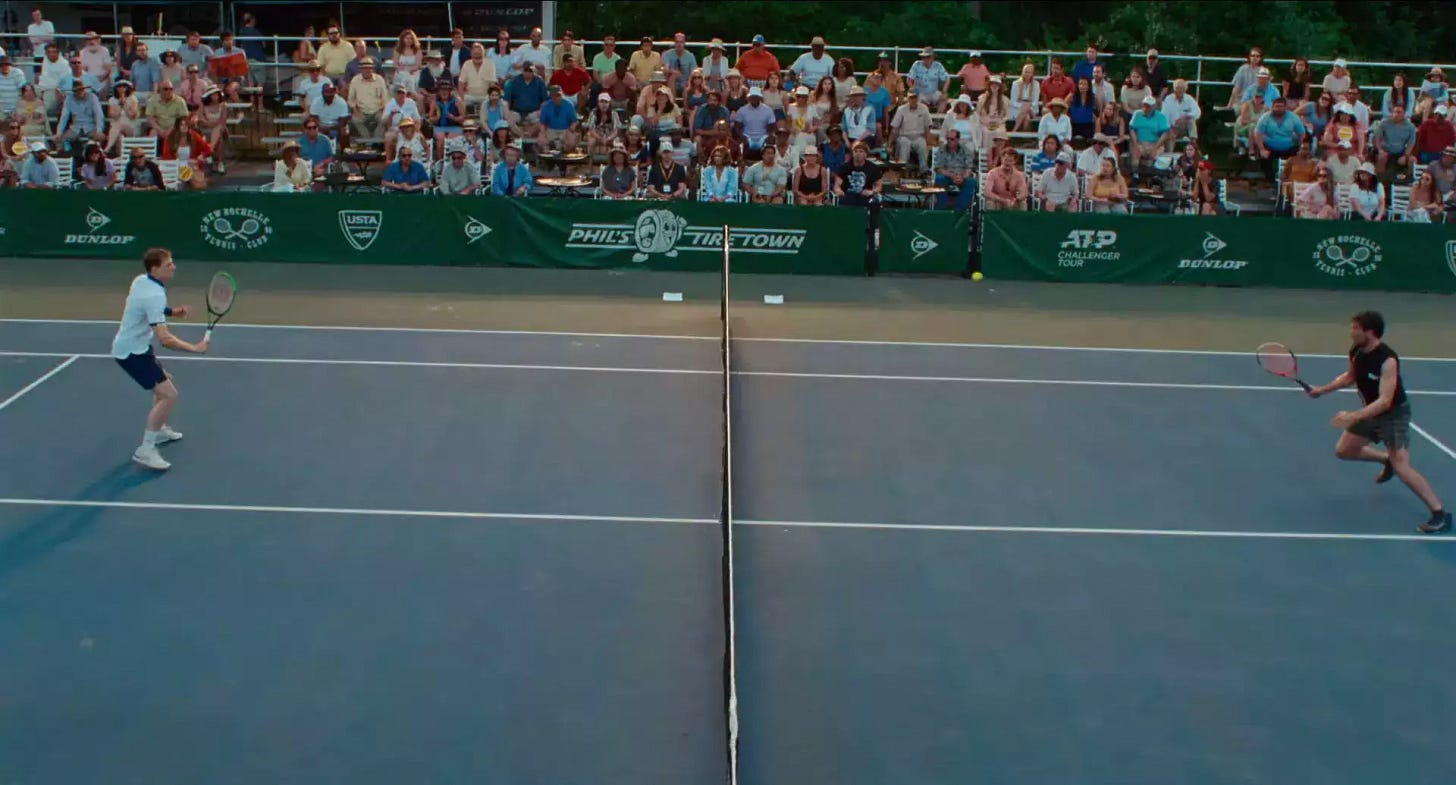Watching
Challengers (2024)
What makes for good live sporting events is not the same as what makes for good writing or good filmmaking. John McPhee understood this in his epochal masterpiece Levels of the Game1, a longform essay describing a 1968 tennis match between Arthur Ashe and Clark Graebner. Through McPhee’s virtuosic prose, we are not only sitting …




